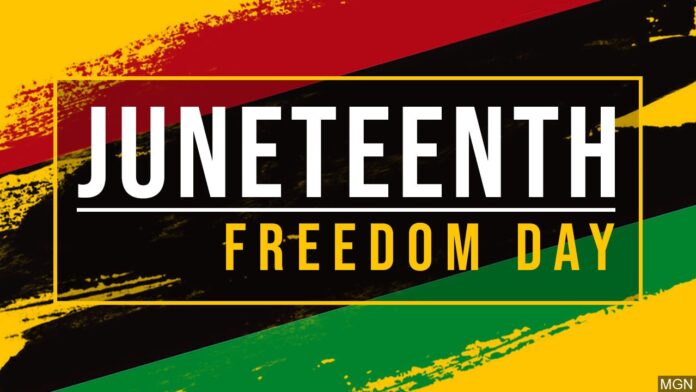People all over the United States are celebrating Juneteenth, a date that many consider the nail that closed the coffin on slavery in this country.
And while it signifies a major step in our nation’s social progress, recent events show that we still have ways to go in order to achieve social equality.
Time blurs history for many people, so we note that Juneteenth did not end slavery; that occurred with the Emancipation Proclamation, which went into effect Jan. 1, 1863. Confederate Gen. Robert E. Lee surrendered to the Union on April 12, 1865, although hostilities continued in Texas and elsewhere. The last formal battle of the Civil War was fought at Palmito Ranch, right here in the Rio Grande Valley, on May 12, 1865.
Even afterward some Texas landowners defied the prohibition of slavery and continued to conscript workers. That led President Andrew Johnson to send a ship loaded with troops to Galveston Bay and announce that slavery was banned, and the government was prepared to enforce it, even to the point of renewing the war. The announcement was made June 19, 1865, 2½ years after the Emancipation Proclamation took effect.
While the announcement focused on Texas, the celebration quickly expanded beyond our boundaries; since this state made Juneteenth an official state holiday, 46 others have followed suit, although efforts to make it a federal holiday haven’t succeeded so far.
Today’s celebration, however, comes at a time of tension our country hasn’t seen in a long time. Protests continue in the wake of the May 25 death of George Floyd, a black man who was being restrained by a white Minneapolis police officer. The action, and public outcry, has spurred an unfortunate backlash that has included threats and actual violence, including possible lynchings; since May 27 the bodies of six black or Hispanic people have been founding hanging from trees in New York City, Portland Oregon, southern California and Houston.
Also in the past week, the Supreme Court has decided two major cases that were far more controversial, and faced much more resistance, than they should have.
The first asserts that federal civil rights laws protect gay, lesbian and transgender people, and belonging to an LGBTQ category is not cause for mistreatment or dismissal in the workplace. It’s unfortunate that such a ruling is necessary; it should be generally assumed that basic human rights belong to all people, without exception.
The second court ruling, issued Thursday, blocks President Trump’s efforts to nullify the Deferred Action for Childhood Arrivals, President Obama’s executive order that provides legal protections for foreign nationals who were brought to this country as children.
However, the court merely ruled that the administration hadn’t provided a compelling reason to erase those protections, and left the door open for Congress to end DACA through legislation.
We hope that Juneteenth offers all Americans a chance to reflect on days in our nation’s history that were even darker than those we endure today. May the major challenges we already have overcome inspire us to keep striving for total equality and true social justice.
That would be even greater cause for celebration.




